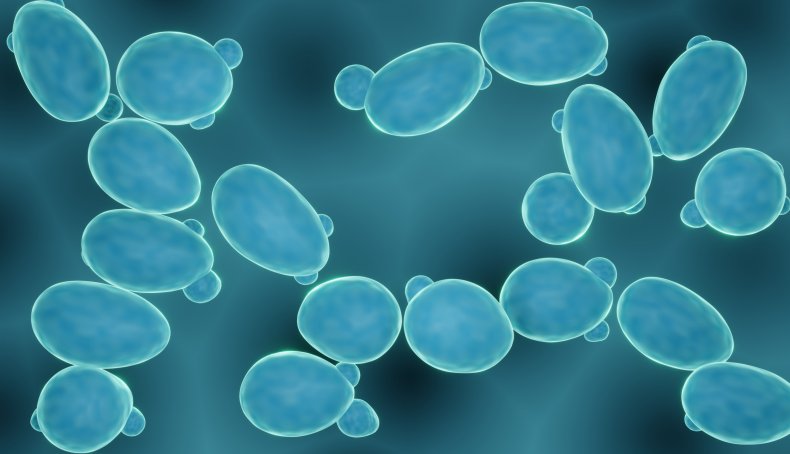What if it was doable to cease the organic clock or a minimum of rewire it?
A analysis staff from the College of California, San Diego, has performed simply that by hijacking a genetic pathway concerned in mobile getting older, rising longevity by over 80 p.c.
Most of us see getting older as an inevitable means of life, however some scientists are starting to contemplate it a illness that we are able to deal with or a minimum of delay. Many elements contribute to getting older. A few of them are environmental, like smoking, weight-reduction plan and air pollution, however others are deeply entrenched in the way in which our cells are programmed.
Every of our cells acts as a tiny molecular manufacturing facility that carries out all the important processes our our bodies must survive. The issue is that these chemical reactions can produce harmful waste merchandise, which construct up over time and might injury our DNA and different mobile elements.
Ultimately, these broken cells might begin producing irritation or flip into cancerous tumors. Because of this, our our bodies have developed programmed strategies to close these cells down earlier than they will trigger any issues.
“Many interacting, signaling elements management mobile dynamics and the dedication to age-associated states,” Howard Salis, an affiliate professor of organic and chemical engineering at Penn State College, instructed Newsweek. “Artificial biology offers superior design algorithms and genome engineering strategies to engineer new genetic circuitry to rewire these mobile dynamics to stop the dedication to getting older.”
Within the College of California research, revealed within the journal Science on April 27, the analysis staff—led by postdoctoral researcher Zhen Zhou—used yeast cells as a mannequin for the getting older course of.
“The pure genetic circuitry inside yeast cells causes them to decide to an age-associated state. [In other words] they turn into aged cells,” Salis mentioned.
The research reveals that “new, engineered genetic circuitry may be launched into yeast cells to delay that dedication to getting older for a comparatively very long time,” he mentioned.
Mohammed Haneefa Nizamudeen/Getty
In yeast, mobile getting older is managed by a genetic change that both causes fragmentation of the cell’s protein-making equipment or dysfunction of the cell’s energy-producing powerhouses—the mitochondria. Both of these pathways will result in the cell’s eventual demise, and it’s largely random as to which “deterioration pathway” is pursued.
The genetic change that mediates these pathways is managed by two molecules: one which drives the decline of the cell’s protein-making equipment and the one that’s related to the perform of the mitochondria.
In a traditional cell, these molecules repress one another’s expression, such that the presence of 1 prevents the manufacturing of the opposite. Because the focus of 1 molecule rises, the focus of the opposite will lower till finally the cell is pressured to “commit” to one of many deterioration pathways.
Nonetheless, in Zhou’s research, a brand new genetic circuit was created to permit the cells to oscillate between excessive ranges of every of those molecules, stopping them from committing to both age-associated pathway. These engineered cells lived for 82 p.c longer than people who had not been tampered with, indicating a transparent improve in longevity.
Whereas this research was carried out utilizing a tiny, single-celled fungus that’s used to make bread, the outcomes are nonetheless an thrilling proof of idea that might be relevant to human cells. Salis detailed the significance of this research in a perspective piece in the identical journal.

Artur Plawgo/Getty
“There are numerous mobile pathways in yeast cells which can be broadly conserved and seem in human cells as effectively,” Salis mentioned. “Human cells do have extra pathways with extra interlocking suggestions loops. However, importantly, the identical/comparable strategies may be utilized to check and modify pathways in each organisms.”
He continued: “Human cells additionally comprise comparable, however extra advanced, pure genetic circuitry that causes them to decide to age-associated states, which implies that it may be doable to rewire these pure genetic circuits to delay getting older in the identical method.”
This mobile reprogramming shouldn’t be a fast getting older repair that would imply immortality, however it might be used to delay the onset of age-associated illnesses. “A possible aim could be to decrease the chance and morbidity of most cancers, Sort 2 diabetes and different age-associated illnesses in wholesome people in order that human longevity turns into extra uniformly excessive,” Salis mentioned.
The research’s researchers, he mentioned, have “demonstrated a highway to understanding and controlling mobile getting older…to pinpoint the tunable knobs and swappable wires that may be manipulated to redirect a cell’s pure dynamics away from getting older and towards the upkeep of wholesome cell states.”


